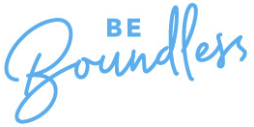Let’s face it. It’s time to update your resume. If you updated it recently, do you know which thumb drive, cloud account, or digital device you saved it on? The deadline for the job or internship you want is approaching fast. What do you do?
You need to rewrite your resume from scratch. Don’t worry. You can do this. Here is how you start:
- Make a two column list with the requirements for the job you want in the first column and the experiences you have that match the requirements in the second column.
- Include paid, unpaid, academic and freelance experiences in this list.
- Make sure you have the dates and locations for each experience.
- Highlight job and industry terms emphasized in the job announcement. Make sure these words are used in your resume experience section. Applicant tracking systems often scan your resume for key words from the job posting before your resume advances to a human reviewer. Your resume may never be seen by the human eye if key job announcement terms are not included in your resume and clearly demonstrated as part of your experience.
Do you have enough experiences to match the job requirements? Do you meet the minimum requirements? If your answer is yes, proceed to the next step in writing your resume. There is a difference between desired qualifications and job requirements. If you don’t meet the requirements for the job, such as having a degree, don’t apply unless you have a lot of relevant experience that may supersede the degree requirement.
Do’s
- Do include professional contact information. Make sure the phone number you list on your resume has a professional voicemail greeting that includes your name. Then make sure that your voice mail box has been set up to receive messages. “You’ve reached 706-555-1212, please leave a number” does not confirm your identity, so callers might not leave a message for you.
- Do create and use an email address that is some variation of your first and last name. Until you graduate, use your AU email address.
- Do add your LinkedIn URL to your contact information for a professional touch. Don’t have a LinkedIn profile? Consider creating one to maximize your networking efforts during your job search.
- Do include your education starting with your current degree name and the month and year you expect to graduate from Augusta University. Make sure you use the correct name for your degree.
- Do include all recent experiences related to your job of interest. These experiences can include course projects, freelance work, paid and unpaid internship experience; field, clinical and volunteer experience; and full and part-time jobs.
- Do incorporate data points where possible to quantify your experiences. “Created and launched social media campaign on Instagram and Facebook which resulted in a 30% increase in web traffic.”
- When describing your experiences, do focus on action verbs to start your phrases vs. long, narrative descriptions. Make it accomplishment oriented. Ask yourself, “Does this information show the impact of ME on the position and how I added value to the role?” The content in your job experience sections should be more about your impact and contribution to the role, skills gained and knowledge obtained versus simply reiterating the job description.
- Do include a tailored cover letter when you submit your resume. This can be submitted as one document to ensure it remains intact when you submit it through the employer’s applicant tracking system.
Don’ts
- Don’t include your picture on your resume. Save your picture for your on-line profile.
- Don’t list your age, race, ethnic background, marital status, religious or political affiliation or social security number on your resume.
- Don’t include references on your resume. Instead create references to refer to when you complete job applications or as an addendum to your resume when references are requested as part of the submission. Always ask your recommenders for permission before listing them. These are typically 3-5 people who have worked closely with you in a supervisory, work or academic capacity.
- Don’t use more than 1-2 fonts and font size should never be less than 10pt, with 11-12 being ideal.
- Don’t use tables or templates. They can often be difficult to image in applicant tracking systems. Create your resume from scratch in Word and be consistent in your headings and format.
- Don’t put years only as your dates of work. You need the month and year—Month Year to Month Year for each experience so the employer can assess your qualifications. Consider this, dates listed as 2019-2020 can be interpreted as 2 days or 2 years. There’s a big difference!
Once you have completed the first draft of your resume, ask your career consultant, advisor, professor, or mentor to read it for errors in formatting, alignment, word choice and spelling. Your resume should be easy to skim from top to bottom in 10 seconds. Provide your reviewer with the job you are applying to as a means of assessing how well the two documents align.
If you fold the paper into thirds, the top third should have the most relevant information to capture the reader’s attention and communicates your qualifications for the position. If your relevant experiences are buried deep into a resume, your resume may get discarded upon an initial scan. You get one shot to make a strong first impression, so make sure that the top third of your resume holds the most relevant information. A base resume is a good jumping point but remember, each resume submission should be tweaked to reflect the specific job you are applying to.





